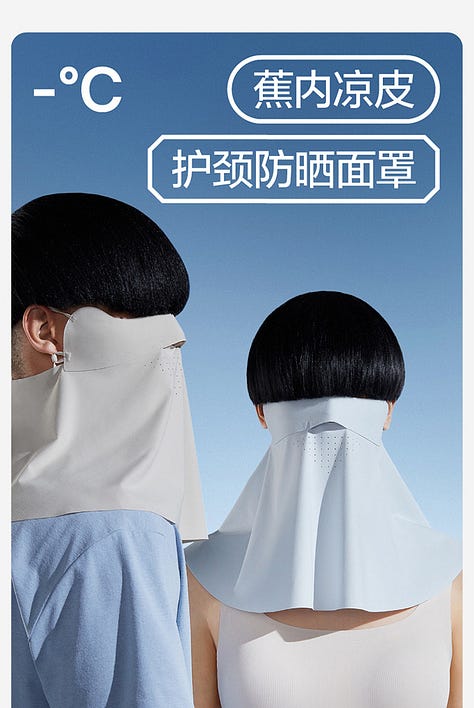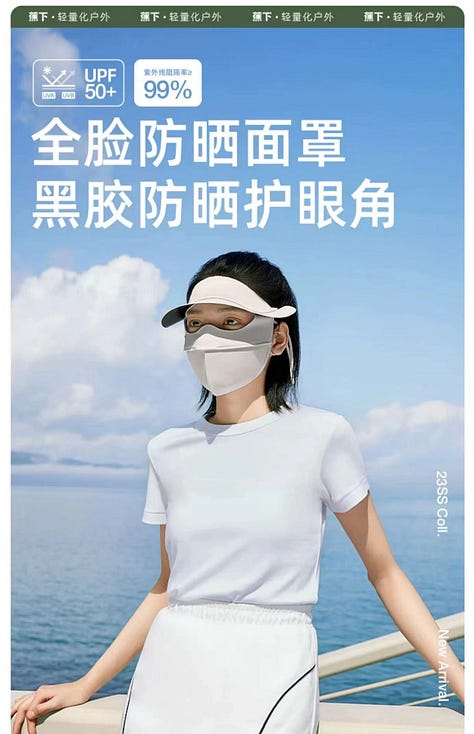Weekly #15: the evolution of facekini👙, Jay Chou saves tourism 🤑, fitness for commitment-phobes 🏋🏽| Following the yuan
You know what else was hot ~10 years ago in China? Crocs.
Please welcome 49 new subscribers since the last newsletter — it's great to have you here! 👀
Also, welcome back to the weekly news roundup, which I’ve been putting on hold when I was in (remote) school. In this revamped edition and moving forward, I will be sharing three news pieces that reflect significant trends in China's consumer markets. I aim to maintain a standardized and formal approach to make it a valuable reference for both your work (and pleasure) and mine in the future. For those who enjoy my commentaries, make sure to tune in every Thursday!
As a newsletter written from the perspective of a Chinese consumer, I must clarify that I have absolutely no knowledge about the first trend, which was hot for a while 10 years ago. I rarely put on sunscreen and the only purpose I can see facekini serve is to stop me from being tracked by cameras while jaywalking. Wait, come to think of it... 🤔
1. The evolution and comeback of facekini 👙
Before you go ‘wow, Chinese people are so weird’, I’m here to say that this was a cover photo in China Daily 10 years ago, K? Times have changed, and now we are more like…






